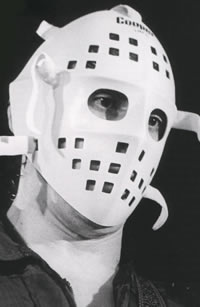

Timeline: 1978
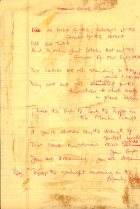
Deleted "Jack The Ripper" single
The single Jack The Ripper, with an instrumental version of Chuck Berry's Memphis on the B-side, is pulled, because of the Yorkshire Ripper murders in Northern England making headlines.
The track is later included on the Seducing Down The Door compilation. It was first released on the IRS Anniversary album These People Are Nuts! in 1989.
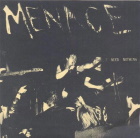
Menace single reissue
The Cale produced single by London based street punk band Menace I Need Nothing b/w Electrocutioner is finally released. It was recorded in June 1977. A third track, I Like Chips, is included on a reissue in 2020.
Shelved The Sic F-cks EP
He produces a 6-track EP by New York punk band The Sic F-cks for Polish Records. Never released and the masters have been long gone. They got lost after the Sundragon Studios, the place where the songs were recorded, went out of business. He sang their praises in an interview with New Wave Rock fanzine in the September 1978 issue:
"I think they're great! I think they have potential for something they haven't stumbled onto yet. I can see them coming to something that will be really good. It has to do with their stage show, and their music as well. That chaos that goes on up there is the best of it. And the other thing is that they really have a good time! They don't care that much about togetherness, they all wrestle about and get very silly."
Joey Schaedler was the band's lead guitarist then:
"As far as the sessions are concerned, they were recorded at Sundragon Studios (defunct) in NYC over the summer of 1978. I don't remember the exact date. But I do remember it was a single day in the studio. John never said much. He sat around reading a foreign policy magazine given the wonkiness of his personality. We did quiz him about the Paris 1919 album. He told us that Little Feat was the backing band for the record. Which you might find interesting! The Sic F-cks were accustomed to getting drunk in order to play, so at one point I suggested that we get a case of beer in order to "lubricate" things. He handed me a $20 bill. The masters were left in the hands of the studio and when Sundragon went out of business in the 1990-2000 range, they were lost. John Cale might have a copy of it, but I doubt it."
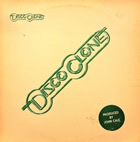
Disco Clone
Release of the single Disco Clone. Limited edition of 1500 copies. The A-side contains the English version, the B-side is in French. Cale is listed as producer, though he doesn't remember doing it. The singer, who is not listed on the single, is Christina Monet-Palaci, who was romantically involved with Michael Zilkha, co-founder of Ze Records.
Included on the Conflict & Catalysis: Productions & Arrangements 1966-2006 compilation album (2012).
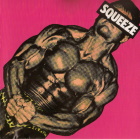
Producing Squeeze
Produces the self-titled Squeeze album. Cale suggested the London based New Wave band that the album be called Gay Guys. The band's songwriter Chris Difford remembers:
"We didn't really turn the corner into the Velvet Underground world until John Cale produced our first album, He would say to me, "Your lyrics are too sweet, Chris. Why not write a song about being whipped? Or being sexually harassed by a prostitute?" But 1 said "That hasn't happened to me yet!" So he told me to use my imagination. And that was fantastic, to be told I could use my imagination like that He told me to think about what goes through a muscleman's mind before he goes onstage, getting all vibed up, covering himself in oil, taking all these drugs. So, I went home and wrote a song that depicted that. It was a childhood dream that I never thought would come true, to work with one of the Velvet Underground. Our manager Miles Copeland had an agency, and John Cale was signed to it, so we asked him to produce the album. This was the time when he was biting the heads off chickens onstage in Croydon. He came down to the studio to listen to our songs, and I can't say we got on very well at the start. He really didn't like our music and wanted to completely change what we'd done. The twenty-four pop songs we'd recorded for our first album, he dumped them all and made us start again. So we had songs with whipping in the background, a song called "Sex Master." We were young guys making our first album, and it was frightening."

Note: the band named themselves after the "fifth" Velvet Underground album, which was basically a Doug Yule solo thing, with Deep Purple's Ian Paice on drums. The name UK Squeeze was used in the USA and Canada to avoid confusion with the American rock band Tight Squeeze.
The track Sex Master is included on the Conflict & Catalysis: Productions & Arrangements 1966-2006 compilation album (2012).
Wrong Way, an outtake from the sessions, is released in 1979 as a single-sided green 7" 33RPM flexi-disc with the October 4th - 17th 1979 edition of Smash Hits magazine.

Tom Wilson dies
Tom Wilson, who produced Sunday Morning from The Velvet Underground and Nico album (he was the de facto producer of the full album, according to Cale) and White Light/White Heat, dies from a heart attack in Los Angeles on September 6th. He was 47.
He also worked with Bob Dylan (he produced his recording of Like a Rolling Stone in 1965), the Mothers of Invention, Sun Ra, and Simon & Garfunkel.
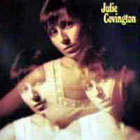
Julie Covington
Cale plays piano and clavinet on four songs on English singer Julie Covington's self-titled debut album: (I Want To See The) Bright Lights, By The Time It Gets Dark, How and The Kick Inside.
He had already played keyboards on her Only Women Bleed single (1977). This is included on the expanded CD-reissue Julie Covington ... plus (2009).
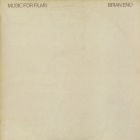
Viola for Brian Eno's Music For Films
Plays viola Patrolling Wire Border a track from Brian Eno's experimental electronic Music For Films album.
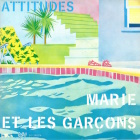
Marie et Les Garçons single
Produces on the Attitudes (on which he plays piano) b/w Re-Bop (on which he plays marimba), a single by French new wave band Marie et Les Garçons. The band had handed him a demo, and soon afterwards he invited them to come to New York to go work with him in the Big Apple Studio. Released on Cale's label Spy Records in the USA.
Re-Bop is included on the Conflict & Catalysis: Productions & Arrangements 1966-2006 compilation album (2012).
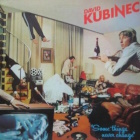
Producing David Kubinec
Produces and plays keyboards on Some Things Never Change, an album by English singer and keyboardist David Kubinec.
Chris Spedding and Ollie Halsall, two guitarists who have worked with Cale, also play on this album.

Genya Ravan covers "Darling I Need You"
American rock singer Genya Ravan covers Darling I Need You on her Urban Desire album. This LP also contains a duet with Lou Reed: Aye Co'Lorado.
Jamming with Chris Spedding & The Wildcats
Joins Chris Spedding & The Wildcats on stage for two shows at Max's Kansas City in New York on October 3. He performs Pablo Picasso > Mary Lou > Baby, What You Want Me To Do? during the early show and a loose jam called John's Blues during the late show. This show is the source for the expanded version of the John Cale & Friends bootleg CD.